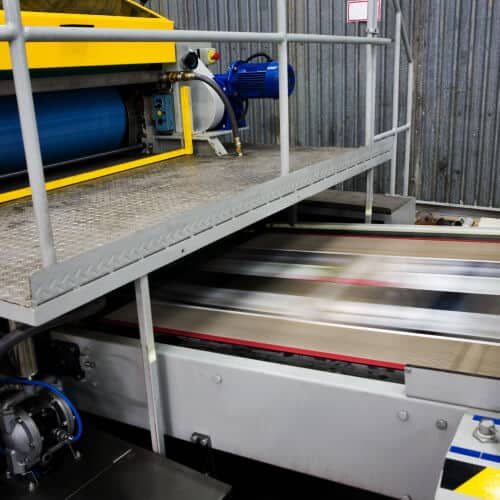A Comprehensive Guide to Recognizing Litho Printing Techniques
The globe of litho printing, a technique originating from the late 18th century, is an interesting blend of background, science, art and innovation. Remain with us as we trip into the fascinating realm of litho printing.
The Historic Development of Litho Printing
The historical trajectory of litho printing, a critical development in the world of communication, is a fascinating story of human resourcefulness. Birthed in the late 18th century by Alois Senefelder, this technique was originally an affordable approach of releasing theatrical works. Lithography, obtained from the Greek words for 'rock' and 'to write', utilized a smooth rock surface area to transfer pictures onto paper. The process developed with the development of the rotary press, which greatly raised productivity (litho printing). In the 20th century, the technology of offset lithography transformed the market, enabling automation of top quality prints. Each stage of litho printing's advancement showcases humankind's relentless quest of efficiency and high quality in visual communication.
Deciphering the Science Behind Litho Printing Inks
Moving on in the exploration of litho printing strategies, the emphasis now changes to the scientific research behind litho printing inks. The composition of these inks, their drying procedure, and color mixing methods develop the backbone of this intricate art type. Understanding these elements is critical to understanding the craft and accomplishing the preferred print results.
Structure of Litho Inks
In lithographic printing, the fundamental function of litho inks can not be overemphasized. The structure of litho inks differs depending on its purpose, however normally, they are composed of two major elements - pigments and cars. Pigments, the color-providing aspects, are finely ground bits put on hold in the automobile, a fluid that lugs the pigment onto the printing surface area. The car is an intricate mix of oils, solvents, and materials, which affect the ink's drying out time, adhesion, and gloss. Additionally, different ingredients are present to enhance specific residential properties like circulation, drying, and resistance to ecological effects. Each part plays an essential part in the final print's high quality, making the accurate formula of litho inks an elaborate science.
Ink Drying Refine
From the structure of litho inks, attention turns to the fascinating procedure of ink drying out. 2 key approaches are used in litho printing: oxidative drying out and absorption. Absorption, on the various other hand, includes the ink leaking into the paper fibers, which is a much faster procedure yet can lead to much less vivid colors.
Shade Mixing Methods
While the drying out procedure plays a key role in litho printing, the scientific research of color mixing strategies holds equal relevance. The scientific research behind litho printing inks additionally takes right into account the openness of the ink, which impacts how shades overlay and mix.
The Art and Style Elements in Litho Printing
Litho printing breathes life into art and design via its special components. Litho printing accommodates a selection of colors, allowing musicians to develop vivid and vibrant prints. This mix of precision and adaptability makes litho printing a preferred choice for several musicians and developers.
Modern Applications of Litho Printing Strategies
Litho printing techniques have found considerable usage in the contemporary commercial field. Its impact and value remain to grow with the introduction of new developments and modern technologies in the area. This section will certainly explore these modern applications and the transformative duty they play in the printing sector.
Industrial Litho Printing Uses
Litho printing continues to be an important component of the industrial field. High-volume printing jobs, such as the manufacturing of publications, newspapers, and product packaging, rely on litho printing for its ability to supply exceptional picture high quality and cost efficiency. Litho printing also supplies a broad shade spectrum, exceptional to that of electronic printing.
Developments in Litho Printing
Pressing the borders of traditional techniques, modern-day advancements have sustained a host of innovations in litho printing. These breakthroughs official source have not just boosted the high quality and performance of litho prints yet also broadened its application range. One noticeable growth is digital litho printing, which integrates the merits of electronic modern technology with litho's premium result. This crossbreed version supplies faster setup times, lowered waste, and enables on-demand printing. One more significant improvement is the introduction of environmentally pleasant inks. These inks, made from vegetable or soy-based services, have dramatically minimized the market's ecological impact. litho printing. In addition, the advancement of advanced plate innovation has streamlined the printing process, causing sharper photos and improved color fidelity. These technologies highlight the enduring importance of litho printing in the modern world.
Discovering the Refine of Litho Printing: Action by Action

Difficulties and Solutions in Contemporary Litho Printing

Regardless of the precision and practice that litho printing happily maintains, it is not without its collection of contemporary obstacles. Digital litho their explanation printing permits for economical short runs and very easy personalization, addressing the issue of variable information. Hence, while there are obstacles, the litho printing market is proactively adjusting to satisfy them head-on, guaranteeing its importance in the future.
Conclusion
In conclusion, litho printing, with its abundant history and clinical intricacies, holds a substantial area in the print market. The future of litho printing hinges on its capability to adapt to these altering needs, verifying its enduring value in an advancing market.
